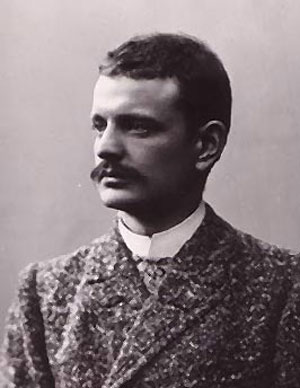
Be Still My Soul
#819 in Glory to God
The words of this hymn were written by Katharina Amalia Dorothea von Schlegel who was born in 1697. Very little is known about her other than that she was from a German-speaking, aristocratic family. We don't know what she looked like. We don't even have a record of the year when she died. We know, however, that during her lifetime there was a strong movement among Lutheran Christians to incorporate Bible study, personal experience, and emotional response into Christian worship. This movement is called "pietism." Katharina took the Bible story we read earlier today from the gospel of Mark about Jesus ordering the winds and the waves to be still, and she applied that story of a fierce storm on the Sea of Galilee to her very personal, emotional storms. Many of us experience emotional storms like Katharina's from time to time.
Unlike most of our great hymns, this poem is not a prayer addressed to God or a testimony addressed to other humans. Katharina is speaking to her own soul. She is reminding her soul of the story from Mark 4. She is reminding her soul that her Lord has taken care of her before. She is acknowledging her personal fears and doubts and then reminding herself that Jesus has "got her back." The poem Katharina has left us is a great model of how to calm our own souls.
Now let's look for a minute at the tune for this hymn. When the composer, Jean Sibelius, was born, his homeland, Finland, was ruled by Russia, and there was a quiet, underground movement of Finns seeking independence. By the time Jean was an adult, this desire for freedom from foreign domination was too strong for Russia to ignore
In 1899, Tsar Nicholas II of Russia began a ham-handed suppression of any suggestion of Finnish freedom. This stirred nationalistic passions in Jean. That year, he wrote the tune we now sing to "Be Still My Soul" as part of a set of eight settings of patriotic stories from Finnish history. This particular tune, would eventually be named FINLANDIA. It quickly became very popular among the independence fighters. Jean's tune had become closely associated with the battles for Finnish independence.
Katharina and Jean both expressed their emotions in their work. Katharina wrote of her fears and her emotional turmoil. Jean wrote of his passionate patriotism and his emotional bond with his homeland. I encourage you to bring all of your emotions and passions to God as part of your prayer life. If you include your fears, doubts, and other internal battles to God, you can learn that Jesus can still those storms as he stilled the waves. If you bring your patriotic fervor to your God, you allow Jesus to guide your nationalism into service for the common good.
However, if you don't allow God to direct your emotions, you may find the storms are too strong for you, and you'll be lost at sea. If you don't allow God to direct your patriotic passions, you may be seduced into hatred and violence toward everyone whose politics differs from yours. When emotions like those expressed by Katharina and Jean are cut off from the love of God and the teachings of Jesus, they can lead to disaster.
I encourage you to bring all that's in your heart to Jesus. None of your emotions, passions, fears, loves, or angers are too powerful or too terrible for you to take to God in your prayers. Let Jesus calm your soul; let God guide the desires of your heart into praise to God and service to your neighbors.
Never forget that God loves you, and so do I.
Stu Smith
The Text
Be still, my soul: the Lord is on thy side.
Bear patiently the cross of grief or pain.
Leave to thy God to order and provide,
who through all changes faithful will remain.
Be still, my soul: thy best, thy heavnly Friend
through thorny ways leads to a joyful end.
Be still, my soul: thy God doth undertake
to guide the future surely as the past.
Thy hope, thy confidence let nothing shake;
all now mysterious shall be bright at last.
Be still, my soul: the waves and winds still know
his voice who ruled them while he dwelt below.
Be still, my soul: the hour is hastening on
when we shall be forever with the Lord;
when disappointment, grief, and fear are gone,
sorrow forgot, love's purest joys restored.
Be still, my soul: when change and tears are past,
all safe and blessed we shall meet at last.
Katharina Amalia Dorothea von Schlegel, 1752.
The Hymn
A Version for This Pandemic

From the Rev. Stu Smith: My first visit to Camp Carew was when I came under care of the Presbytery of Southeastern Illinois at a meeting held at camp in 1987. I was ordained and served in Chicago for over 25 years. I received my Doctor of Ministry Degree from McCormick Theological Seminary in 2001 with a concentration in Religious Education. My doctoral thesis was Out of the Church Basement and into Cyberspace: Internet-Based Religious Education for Youth.
In 2014, I moved back to my family farm in Vermilion County. I'm very proud to be associated with Kemmerer Village and Camp Carew and the powerful ministry with young people that they provide.

Camp Carew welcomes campers from all religious traditions.
Camp Carew is a drug- and alcohol-free environment.


